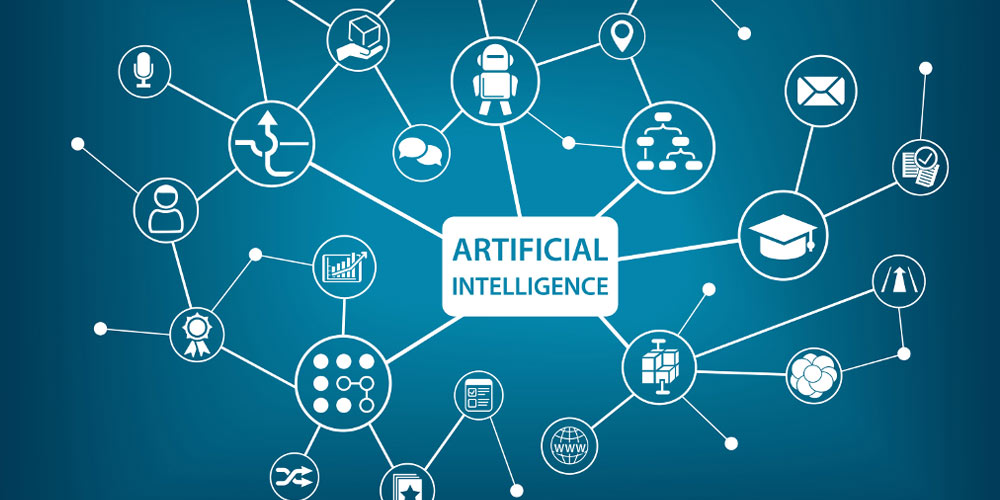The power of cryptocurrency is undeniable. They have the ability to shift financial power away from the governments and banks to individuals. And in AI, computers can be smarter in a way that it understands us without being manually taught.
Blockchain that powers cryptocurrencies and AI, are two hot topics. Can they work together to create great products?
The problem with businesses that want to use AI, isn't about the cost. The development of AI has become more affordable and accessible. The biggest barrier, is gaining access to quality data.
A company alone cannot generate that much data needed for an AI to learn, because most businesses only handle a small portion customer’s purchases information. This is hardly enough to make these AI systems work well. it needs data gathered elsewhere, like from third-parties.
They may rely on data gathered by bigger companies, which definitely have the advantages when it comes to big data. However, that is one issue: trust problem.

It was discovered that the bigger the data set analyzed by orders of magnitude, the lower the error rates. When this becomes obvious, the race for big data started. It's all about gathering, storing and analyzing as much data as possible. The one that has the most data, is the winner.
When it comes to tech companies, Facebook, Apple, Google and some others are sitting on a mountain pile of data. In China would be BATs (Baidu, Alibaba, Tencent). Not limited to them, wealthy conglomerate companies and multinational corporations also have their hands on huge consumers' data.
This huge asset is capable of generating even more data, giving them the ability to build AI models on top of them. This creates a barrier which makes the powerful becomes even more powerful, and making innovations by smaller companies even more limited.
If smaller companies want to rely on data provided by those larger companies, they need to trust their decision-making on a centralized source of information. They need to have confident in:
- The integrity and security of the data (are they accurate and reliable? Are they manipulated or stolen?)
- The machine learning algorithms (are they prone to error or bias, and can they be inspected?)
- The AI’s interface (does it represent the output of the AI and effectively capture new data?)
In this centralized model, the information is gathered by a closed source.
Companies shouldn't trust each of the data given a 100% because they don't know what lies behind the curtain. It’s closed and hidden. The companies behind them have no intention of ever telling how they gathered the raw data, nor revealing how they work.
As a result of this closed-source data, training AI can be biased and somehow racists. Why? Because big data gathered from different companies based on their activities, weren't created equal.
This is where blockchain technology can play its role by putting transparency over data.
Related: How Blockchain Technology Can Change The Way Modern Businesses Work

Blockchain In Adding Trust To Big Data
Data that flows inside blockchain network, will reduce the needs of small companies in relying on big data provided by bigger companies.
So here, when data is commoditized, AI algorithms become the most valuable part of the ecosystem. Using blockchain, there is a shift of power from those who own big sets of data to those who build smart, useful algorithms.
A number of projects created cryptographic tokens for making their data available through a decentralized marketplace. With blockchain, there is data integrity because everyone in the network knows the source of the data, and there is clear ownership of data.
And by commoditizing data, people involved can get compensated for information that they're otherwise giving away for free (when using products by tech companies, like Google, Facebook and so forth). This is because data ownership of the model is clear, which means intellectual property can be protected. Every time the data model is used, the person is compensated.
What's more, because the data is not centralized and transparent, people will know that they are safer from biases and errors.
And as blockchain-based AI projects become a norm, there will be more and more data entering decentralized marketplaces and exchanges. As people realize the value their personal data has, along with the opportunities to monetize it, there will be a shift in the evolution of big data, moving from a closed sourced to an open system where the creators of data are fairly rewarded for their contributions.
The result is a world with more useful AI systems, capable in making lives safer and more convenient.
Further reading: How Blockchain Can Disrupt Online Marketing, Including The Web Itself